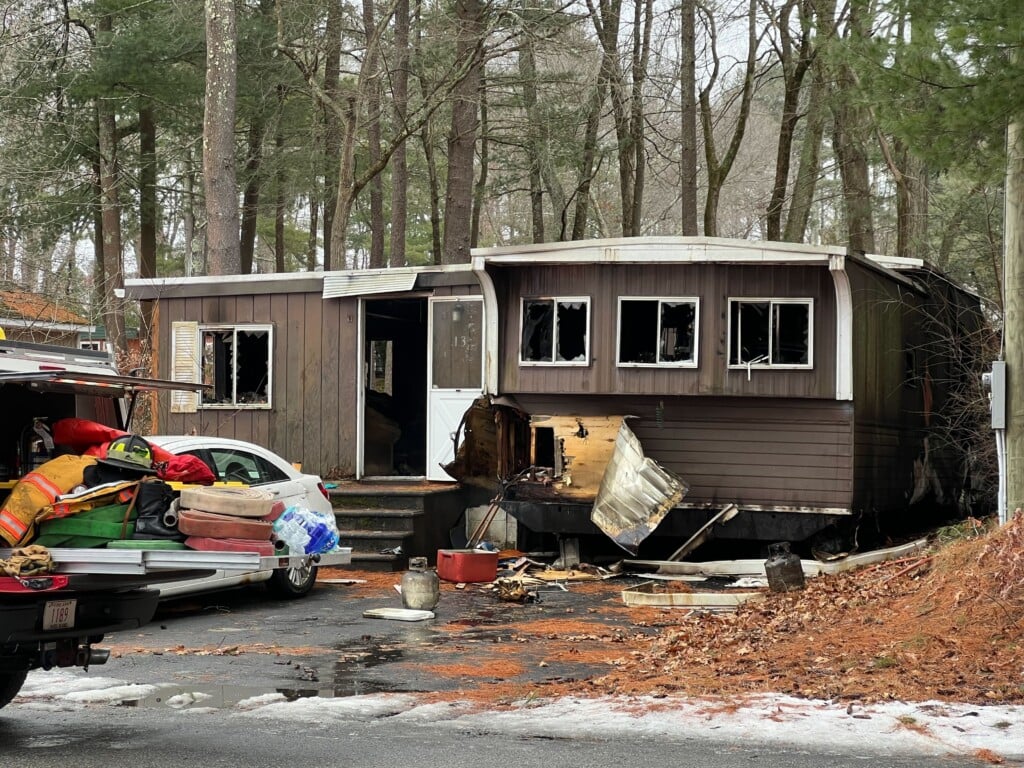Reed: Negotiation needed to prevent Iran from ‘redoubling’ effort to get nuclear weapon
WASHINGTON — Rhode Island Sen. Jack Reed spoke to ABC6 News Monday afternoon after Iran fired missiles at a United States military base in Qatar.
A U.S. official told ABC News the missiles were intercepted and there were no impacts on the base.
Our Q & A with Reed is below:
ABC6: With news of strikes on a U.S. airbase coming from Iran — from your end, what do you know so far about this latest attack?
Reed: The attack was made on Al Udeid Air Base, which is one of our principal locations in the Middle East. Apparently, the Iranians notified the Qataris beforehand and simultaneously they notified [the United States] that there would be an attack. There have been no damages to the airfield, and no causalities, thank goodness. I think this was part of a political signal that they will resist but also recognizing that they have suffered serious causalities in the chain of command, and also, they’re husbanding their missiles for the future. But we’re still at a time where we could see more calculated, more destructive retaliation.
ABC6: Do you think this will be a ‘one-for-one’ attack or do you see further retaliation going forward?
Reed: This will not end the potential for attacks in the region. [Iran is] trying to reorganize after having significant losses in their chain of command. Also, they’re trying to rally their surrogates throughout the region — their proxies. They’re also talking to Russia, particularly, about what kind of assistance they could give. These factors would influence further attacks, either increase or decrease the likelihood depending on the support they’re getting.
ABC6: Do you believe the U.S. should respond to this attack?
Reed: I think a response would be poor strategy, particularly since it appears that the Iranians were informing the target country of the attack, and also because I think we’re at a point now where we’ve got to move to some type of negotiations, because the possibility still exists that they might not take immediate actions against us, but they’ll redouble their efforts to get some type of nuclear weapon, with the theory being ‘the only thing that will protect us in the future is a nuclear weapon.’ So, we have to be very careful about these things.
ABC6: Is there any extra intelligence or detail at this point that can be shared about the level of success of [the initial U.S. strike on Iran’s nuclear facilities]?
Reed: At this point, I think they sustained significant damage, but the question is, is it irreparable damage, and do they have a sufficient quantity of highly enriched uranium to build one, two, or more nuclear devices. There hasn’t yet been briefed to us a battle damage assessment. Once that’s done, we’ll have a better idea, but I would assume it would be highly classified.
ABC6: Some of your colleagues have expressed concern about the constitutionality of these airstrikes conducted by [President Donald Trump]. Do you also share these concerns?
Reed: Absolutely. When President Bush was contemplating his attacks on Afghanistan, he came to the Congress and got an authorization for the use of military force. When he was taking a much more deliberate course of action against Iraq, he also came to the Congress. I was one of 22 senators that voted against it; I thought it was bad strategy, but nevertheless he did seek the approval of Congress. This president disregards Congress consistently and disregards the laws consistently, which is not good precedent to set. I would hope that we could get a chance to debate this, and then perhaps even have a vote, so that we’re on record.
ABC6: There’s been a lot of concern not just for attacks in the Middle East, but possibly here at home. Do you share those concerns and what do you think the level [of concern] is for a possible attack in the U.S.?
Reed: I think we have to be very conscious of such an attack. It could be directed by Iran or it could be spontaneous — people who share their beliefs and who want to punish the United States and Israel for the attacks. I think also with the technology that’s available — and we’ve seen it demonstrated in Ukraine and we’ve seen it demonstrated so many places — what used to be an impossible activity, attacking a U.S. base with a missile — now with a drone — is something that’s feasible, at least. So, we have to be very concerned both by a government-directed attack or a spontaneous attack by someone who’s sympathetic.
ABC6: It’s a very turbulent time, obviously. Is there anything else you want people to know?
Reed: We’re in a very difficult situation. I think that at this moment, the Iranians have been militarily set back significantly, but I see them eventually restoring their military power and trying to, once again, obtain some type of nuclear device. I think in the short run, we have to worry about these proxy attacks either in the Middle East or United States. In the longer run, we have to be concerned that Iran is able to rebuild its forces and its surrogates, and also either build on their own a nuclear device or with the assistance of another country, get a nuclear device.



